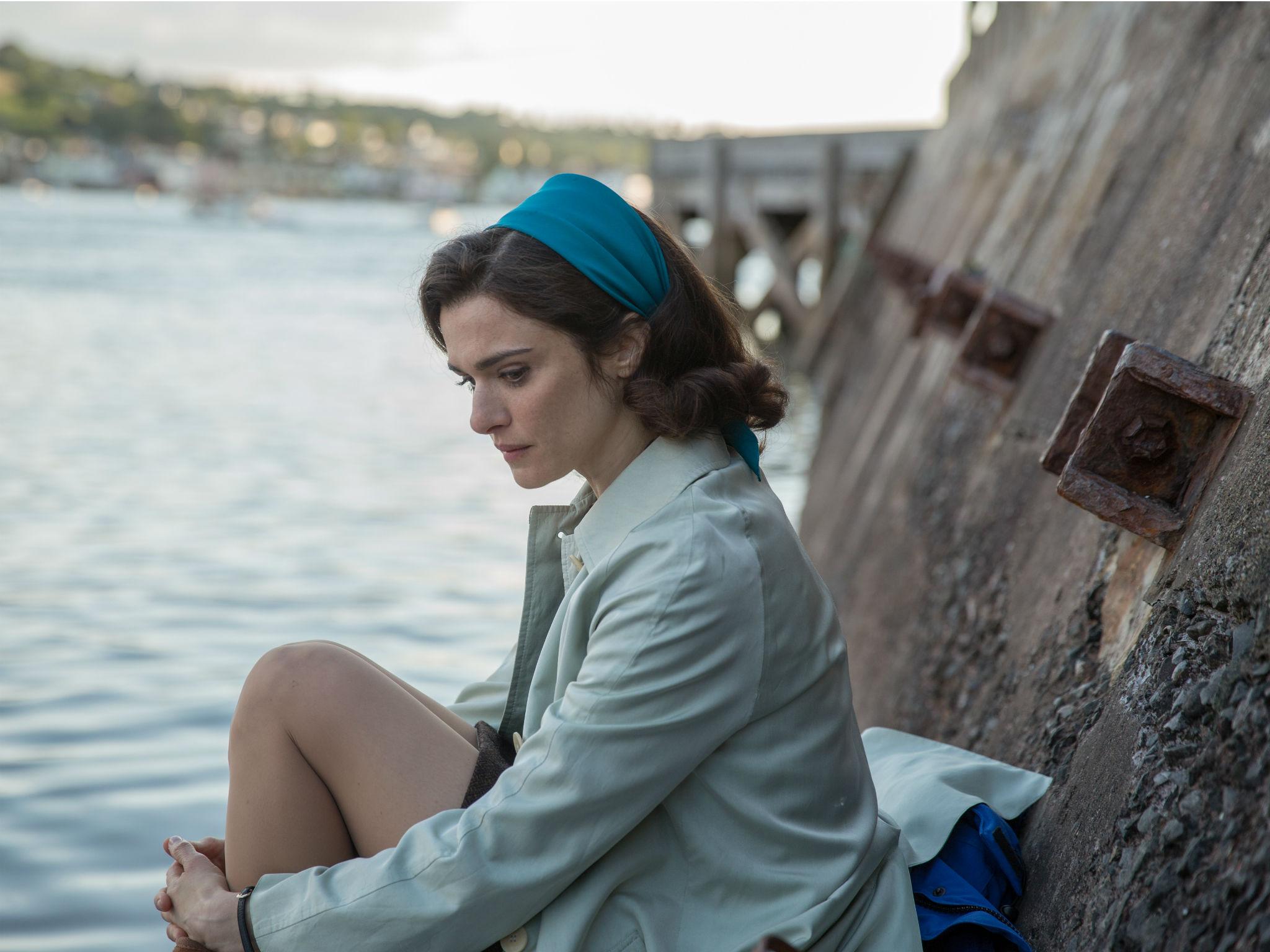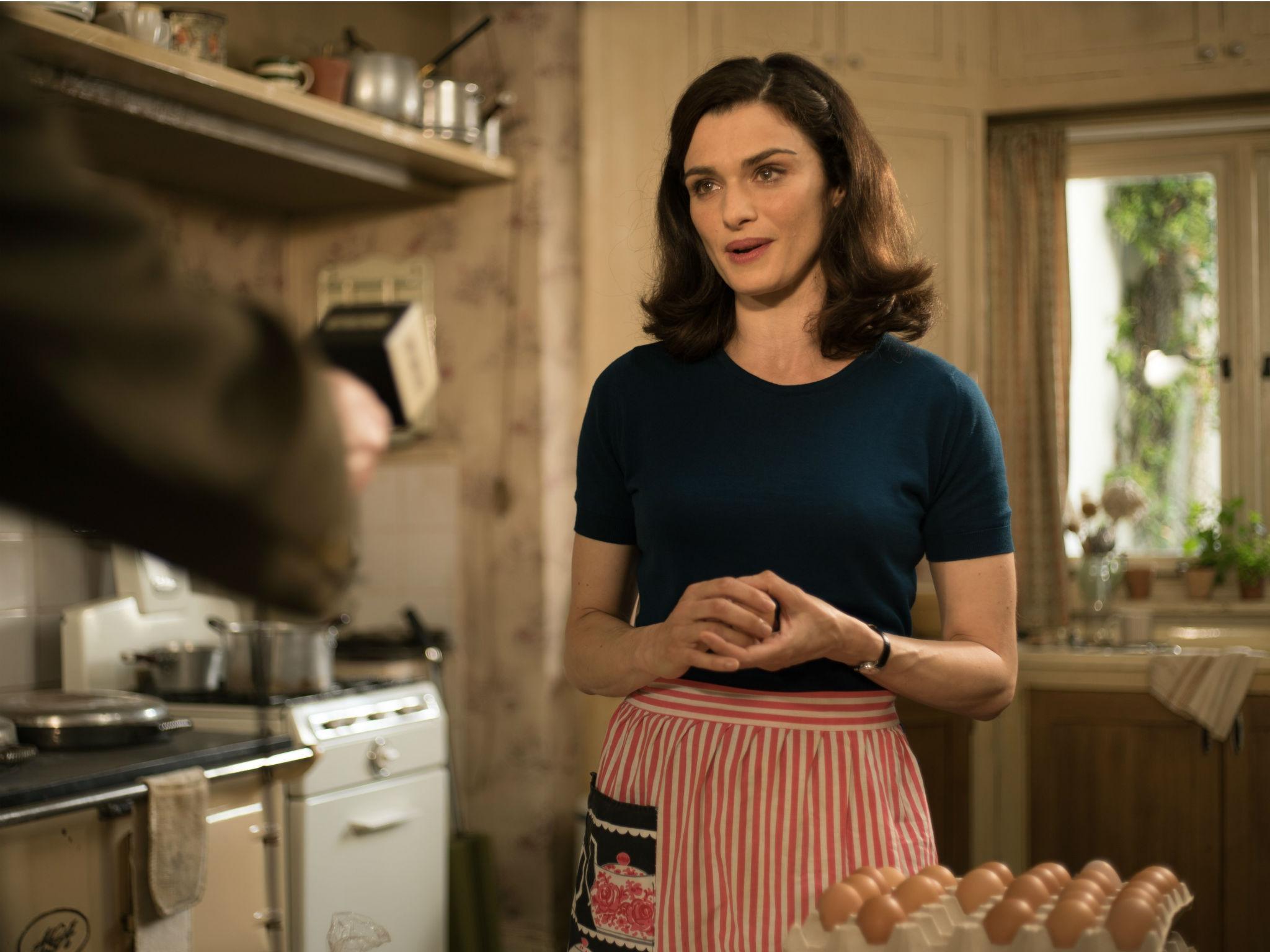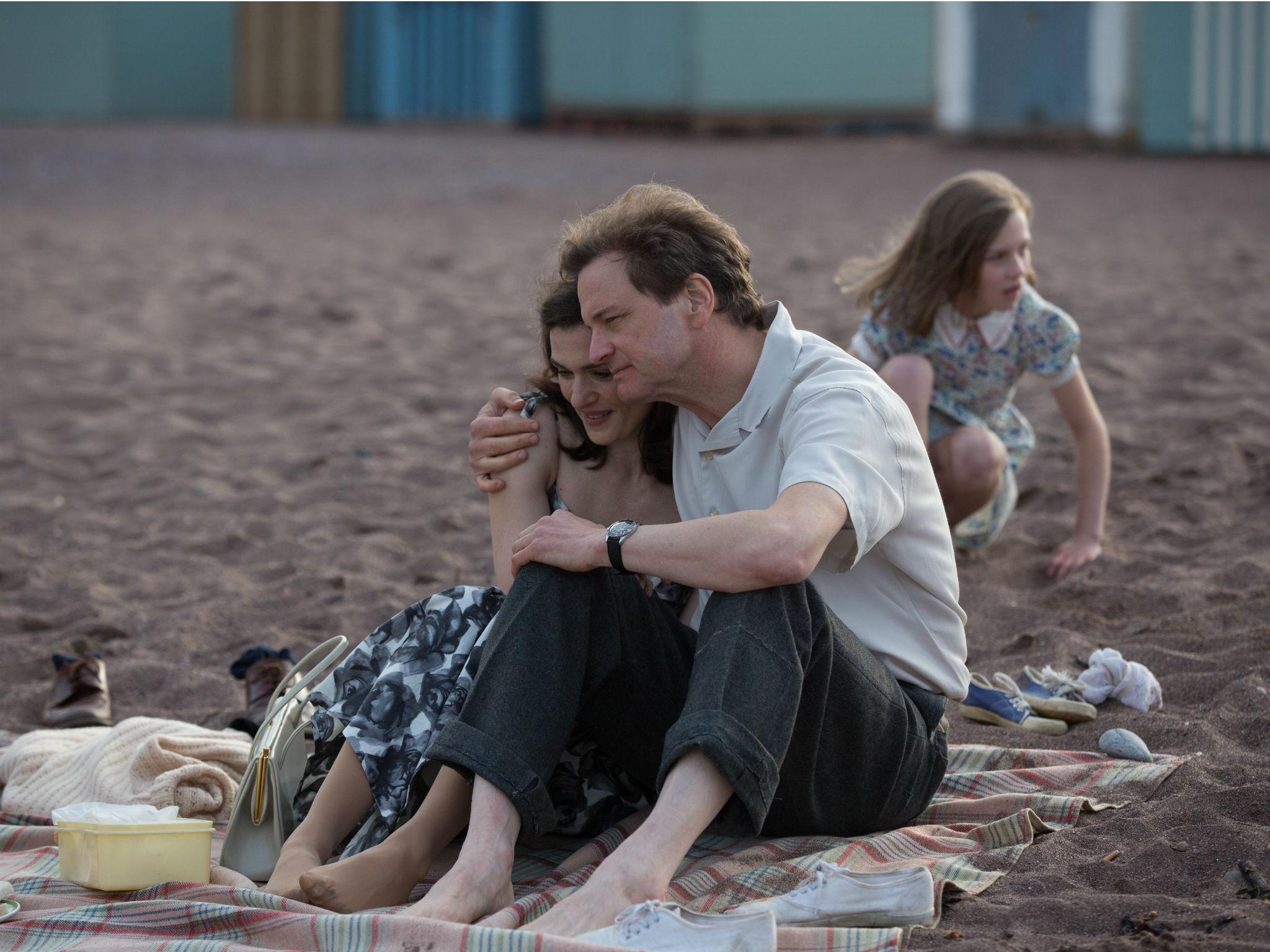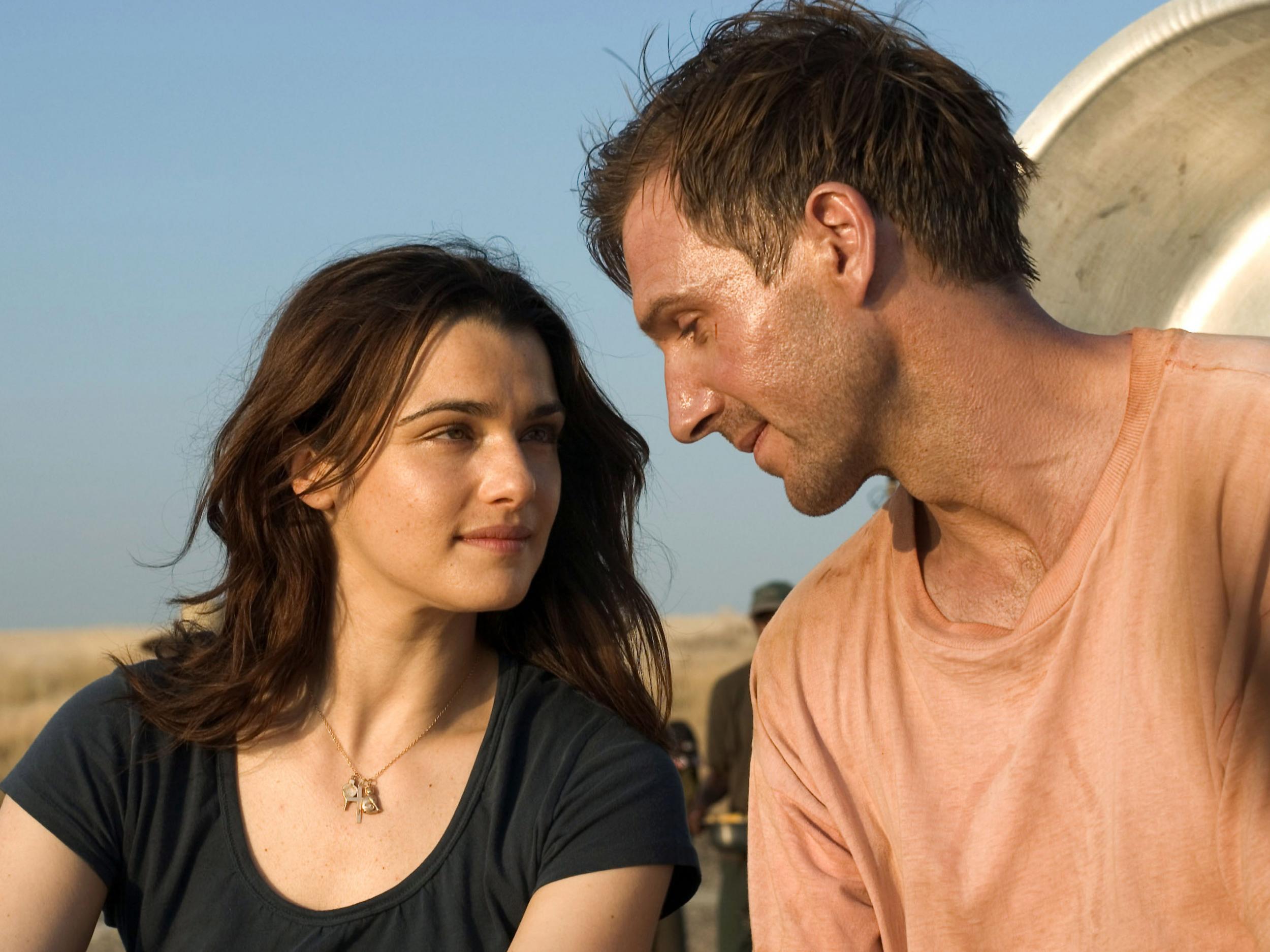Rachel Weisz on The Mercy, Disobedience and controlling her own career
The Oscar-winning actress stars alongside Colin Firth in ‘The Mercy’ as a dutiful housewife who waits for her husband, the yachtsman Donald Crowhurst, to return from a solo round-the-world boat race

It’s the morning after the London premiere of her latest feature, The Mercy, and Rachel Weisz is sitting in a suite in a Soho hotel, pondering the very strange story told in the new film. She plays Clare, the wife of Colin Firth’s character, Donald Crowhurst, the ill-fated amateur sailor who left his home and family to compete in a solo round-the-world yacht race.
Often described as the quintessential “English rose”, Weisz, who won an Oscar for The Constant Gardener, has enjoyed an extraordinarily varied career: one that encompasses Tennessee Williams on stage (her bravura performance as Blanche Du Bois in A Streetcar Named Desire), cheesy Hollywood blockbusters (The Mummy movies), mindbending, magical realist epics (The Fountain, directed by her ex-husband, Darren Aronofsky), European arthouse (The Lobster), and some juicy British costume dramas and period pictures (for example, My Cousin Rachel and her early wartime romp, The Land Girls).
Clare in The Mercy isn’t one of Weisz’s more flashy roles. She is a scarf-wearing 1960s English housewife, supporting her husband in his madcap scheme and then waiting patiently at the end of the pier, like a modern day equivalent to the French Lieutenant’s Woman, for him to come back… if he ever will.

“I haven’t met Clare. In truth, the [Crowhurst] family would rather not have any attention or fictionalised versions of their story. It has been very hard for them,” Weisz acknowledges, but was happy that Crowhurst’s son, Simon, who was a boy of eight when his father disappeared at sea, attended the premiere and appeared supportive of the film. She describes herself as “land-locked” and with little interest in sailing. Nonetheless, she was fascinated by Crowhurst’s story when she read the screenplay for The Mercy. Here was an amateur sailor who “doodled around” in the English Channel at the weekends but who was brave or foolhardy enough to embark on a solo trip around the world. She was able to get a sense of his determination when she met Sir Robin Knox-Johnston, one of Crowhurst’s fellow competitors in the 1968 race.
“He [Knox-Johnston] is a really extraordinary man with such focus. I guess you have to be in order to be alone at sea for 10 months on a boat,” says Weisz.
She also watched the Crowhurst documentary Deep Water and studied the old newsreel footage of Clare being doorstepped by the media after her husband failed to return home.
Weisz speculates that it is possible neither Crowhurst nor his wife really wanted the voyage to take place. “Inside both of them, there is a kind of horror, an internal turmoil and anguish… perhaps she felt he wanted her encouragement and now wishes she hadn’t given any. I don’t know. I wasn’t there. I haven’t spoken to her, but what our screenwriter puts into words is the idea that if you stop someone from doing what they are really burning to do, perhaps they’ll never forgive you and then what would the marriage be anyway.”

While she is ready to talk in depth about Clare’s relationship with her husband, she parries questions that intrude on her own private life. Put to her that being married to a rugged adventurer like Crowhurst must be a bit like being married to James Bond and she says there is no comparison.
“I am married to an actor [Daniel Craig] who portrays that character. He is not James Bond. I don’t think you can equate filming with what Donald did.”
As for how she deals with all the media scrutiny that comes with being an A-list movie star in a high-profile relationship, Weisz claims she hardly notices it. “I don’t have any scrutiny. If there is a press junket, people might ask me a personal question,” she says, but adds that when she is going about her everyday life, she is generally left alone. Aren’t there photographers with long lenses hiding in the garden and trying to take pictures of her? “No… sometimes, but not very often!”
Ask her whether she has encountered sexism or harassment and she starts talking in abstract terms about “patriarchy” and the plight of female workers at Tesco being paid less than their male counterparts.

The 47-year-old Oscar-winning actress from Hampstead is now an American citizen. She lives in New York with Craig, but bridles at even the vaguest suggestion that she has turned her back on her native country.
“I have a son whose father is American, but I am English if you ask me what my relationship to England is. This [England] is my home. It is always going to be my home, wherever I live – America, India, South Africa,” Weisz declares. She may have dual nationality in terms of her passport but insists she still feels British to the core. “I am here all the time.”
Weisz lists the films she has made recently – The Mercy, My Cousin Rachel, Denial and Disobedience among them. What they all have in common is that they were made in Britain.
“My entire working life is here; my family is here, my friends are here,” she rises to her theme. “I don’t feel I am living in exile, looking at England from an American point of view. I am English and I spend an awful lot of time here.”

Weisz recently set up her own production company, LC6. Part of the rationale was to have more control over her career and to work with female filmmakers. “There are far, far less [female[ directors. I love stories from a male point of view, by men, about men, with men as the protagonists, but it is good to have a balance – to see stories from a female point of view and, more importantly, to have women as the protagonists.”
Producing, she adds, is like using a “different muscle” from when she is acting. The job entails optioning novels, finding screenwriters, going through drafts of scripts. “I am just greedy. I want to do both.”
True to her patriotic instincts, the company made its very first feature not in New York or LA but in Hendon. She stars in the film alongside Rachel McAdams. Disobedience, directed by the Chilean filmmaker Sebastián Lelio, is based on the novel of the same name by Naomi Alderman, and is set in the Orthodox Jewish Community. The film is about a woman who grew up in the community but was “banished” for having an affair with a woman. She is a now a photographer living in New York but gets a phone call and has to go back to Hendon. Her father, the Rabbi of this tiny community, has died. In the intervening years, her former lover has married her cousin, who is now set to become the new Rabbi.
“It’s about faith, existential choice, sexual freedom, choosing your family,” Weisz cheerfully explains. She is “half” Jewish herself but freely admits that she knew as little about the north London Orthodox community before she started the film as she did about yachting before she began work on The Mercy. “It’s a very, very closed community.”
It’s a measure of Weisz’s versatility that she is as comfortable playing a lesbian in Disobedience as she was playing the dutiful housewife in The Mercy. The latter film is a love story too, but a notably bleak one in which the likeable, middle-class English couple’s lives unravel, all because of a boat race that Crowhurst didn’t even have to enter. “I think that is what makes it so deep and tragic and human. We’ve all been in situations every day on a much smaller scale where you make one bad decision that leads to another bad decision and everything is screwed up… that frailty is so human.”
‘The Mercy’ is out now
Join our commenting forum
Join thought-provoking conversations, follow other Independent readers and see their replies
Comments
Bookmark popover
Removed from bookmarks